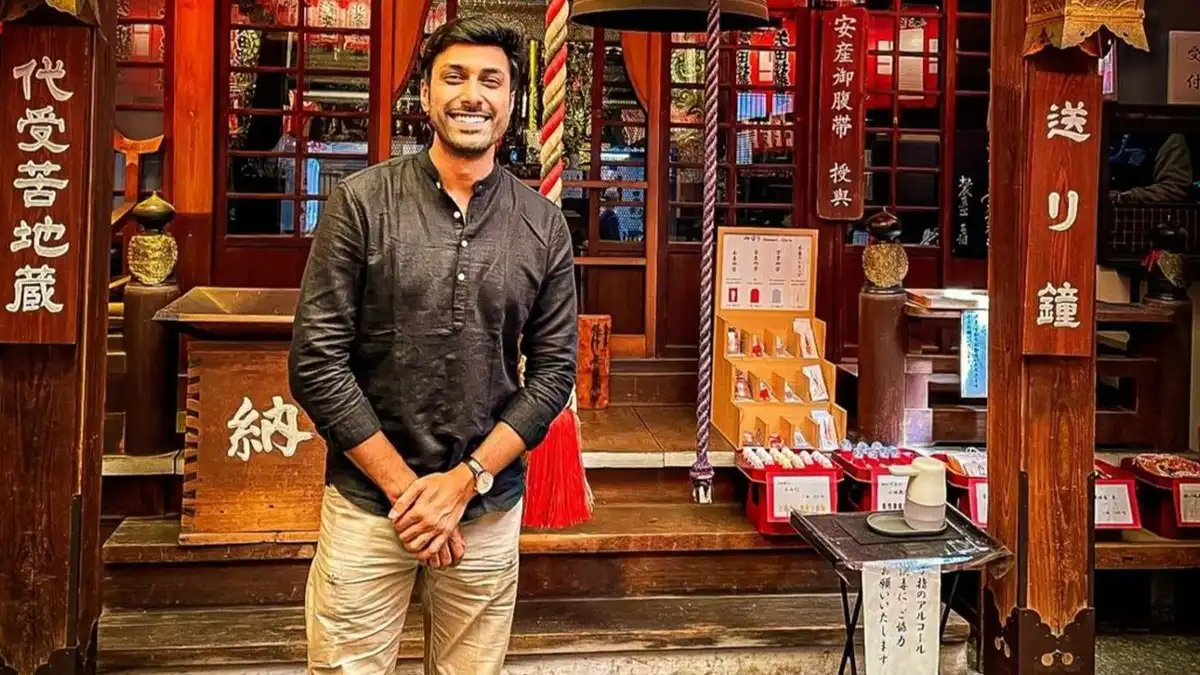Exclusive! Rishi’s 25-day trip to Japan was about culture, traditions, history and good food
The actor’s wife had spent her early childhood in the country and was looking at reconnecting with family friends
May 13, 2023

Kannada actor Rishi and his wife Swathi finally set off on a visit to Japan last month - a trip that was long overdue from before the pandemic. “Since Swathi grew up in Japan, our trip allowed me to gain a personal understanding of Japanese culture, their way of life and belief systems through the time we spent with her family friends who are all Japanese,” says the actor.
The couple ended up spending 25 days in the country, during which time they explored the modern city of Tokyo, the traditional city of Kyoto, the history-rich city of Hiroshima, and the charming, rustic mountain city of Takayama with its hot springs. “We enjoyed the various food delicacies of each place, the multitude of subtle umami flavours and the unique sights of urbanism blended with tradition,” says Rishi.
After nearly a month in Japan, Rishi’s had several observations about the country and its people. “Japanese people, by nature, are humble, polite and extremely helpful. Though shy with foreigners, they open up immensely when one speaks their language, accepting them into the community and showering them with warmth and kindness, as they did with our family. What struck me first in Japan was the sense of order and perfectionism. Everything felt like it had been designed with care and attention to detail, from the bustling cities to the tranquil temples and shrines. People are genuinely invested in doing the best in whatever job they have and that sense of excellence extends to every sphere in life. The work culture is indeed unique, with employees working devotedly for long hours, ensuring that the job is done with utmost sincerity, and partying even harder beyond their work hours. The value system in Japan is mostly based on delivering the best quality of effort, whether you are a salaried employee, a sushi chef, a hotel receptionist or a train conductor. They take absolute pride in it and do not expect any form of tips or rewards from others for doing their job,” he explains.
But what struck Rishi the most is how pretty much every job is automated. “Japan has the opposite problem of what India faces when it comes to population – they have a largely aging population compared to the youth. This forces them to automate most jobs. Many grocery stores are fully automated with zero human intervention, meaning even the billing is done by the customer in the heart of Tokyo. Japan also has one of the highest life expectancies in the world. It was refreshing to see elderly people in their 80s and 90s actively engaging themselves in daily tasks without any assistance, with a sense of purpose and dignity,” he says.
Share